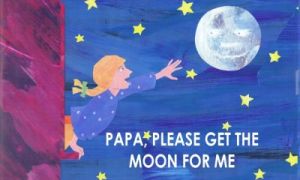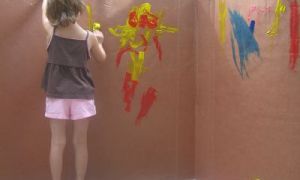

In early childhood settings, emotional literacy is foundational to well-being, learning, and relationships. The free printable Feeling Check-In posters featuring clear visuals, child-friendly language, and actionable strategies offer educators a powerful way to support children in identifying, expressing, and managing their emotions. Whether used during transitions, check-ins, or moments of dysregulation, these posters help embed emotional intelligence into daily practice.
In early childhood education, documentation is often framed as evidence or proof of learning, compliance, or curriculum alignment. But what if we reimagined it as a mirror? A tool that reflects not just cognitive milestones but emotional journeys, identity formation, and the quiet power of self-expression?
Visual documentation drawings, photos, annotated art, and symbolic storytelling can become a language of emotional literacy. It allows children to say what words cannot and invites educators to listen with their eyes, hearts, and intuition.
Helping toddlers and preschoolers build emotional vocabulary is like giving them a toolbox for life—they learn to name what they feel, which helps them express themselves, regulate emotions, and connect with others. Here are some engaging, developmentally appropriate strategies and games to teach emotional vocabulary.
Self-talk is a powerful tool for helping children manage their emotions and behaviors. When used intentionally, it can guide children through tricky moments by giving them the language to pause, reflect, and choose a response. The following article provides information on Why It Works, What Are The Psychological Benefits Of Self-Talk, How to Encourage It, Examples of Self-Talk For Young Children, Activities to Support Self-Talk and more.
Emotional awareness and self-regulation are crucial skills for young children, helping them navigate social interactions, manage their feelings, and develop resilience. The following article provides information on Why Are These Skills Important?, How to Support These Skills in Early Childhood, Using Language To Help With Emotional Awareness and Self-Regulation Skills In Early Childhood, Examples of Self-Talk To Support Self-Regulation, Using Social Scripts, and more.
Emotional regulation refers to the ability to recognize, understand, and manage one's emotions in a way that is appropriate for the situation. It involves strategies and skills that help individuals control their emotional reactions, maintain balance, and respond to challenges constructively. The following article provides 30 fun and effective emotional regulation activities designed for children aged 2–4 years to help them understand and manage their feelings.
Emotional Intelligence is now widely accepted as a fundamental life skill which can be nurtured even in young children. Identifying, labelling and talking about emotions not only helps them regulate their own emotions but also tune in to how people are feeling around them. The following article provide strategies on teaching children about emotions.
Creating a supportive environment where children feel safe to express their emotions is crucial for their emotional and social development. The following article provides information for Strategies To Encourage Children To Express Emotions Activities For Toddlers and Preschoolers, Emotion Vocabulary, Activities to Build Emotion Vocabulary, Activities to Build Emotion Vocabulary, What To Do When A Child Is Angry, What To Do When A Child Is Being Violent/Aggressive, What To Do If A Child Hits You, Alternative Behaviours and more.
This feelings rhyme is sung in the tune of "I'm A Little Teapot" and is simple for both toddlers and preschoolers. It describes facial features when someone is happy and sad. This is a great song for children to get to understand when someone looks happy or sad.
This song is a fun way for kids to learn how to identify and regulate their emotions. Children will begin to understand that they go through different emotions throughout the day and it's alright to feel what they feel when they feel.
 Here’s a comprehensive Mobile Phone and Smart Watch Policy tailored for early childhood education and care (ECEC) services in Australia, aligned with the latest 2025… Read More
Here’s a comprehensive Mobile Phone and Smart Watch Policy tailored for early childhood education and care (ECEC) services in Australia, aligned with the latest 2025… Read More
 Across the early childhood education and care sector, educators are sounding the alarm: current staffing ratios are insufficient to deliver safe, meaningful, and developmentally appropriate… Read More
Across the early childhood education and care sector, educators are sounding the alarm: current staffing ratios are insufficient to deliver safe, meaningful, and developmentally appropriate… Read More
 Thanks to the new National Model Code and upcoming regulatory changes under the National Quality Framework (NQF), early childhood services across Australia must now implement… Read More
Thanks to the new National Model Code and upcoming regulatory changes under the National Quality Framework (NQF), early childhood services across Australia must now implement… Read More
 In the quiet hum of a weekday morning, something felt off. Preschool doors opened, but classrooms remained silent. No greetings. No redirection. No educators. And… Read More
In the quiet hum of a weekday morning, something felt off. Preschool doors opened, but classrooms remained silent. No greetings. No redirection. No educators. And… Read More
 A: In early childhood education and care (ECEC) settings across Australia, mobile phone use by educators is now subject to strict national reforms aimed at… Read More
A: In early childhood education and care (ECEC) settings across Australia, mobile phone use by educators is now subject to strict national reforms aimed at… Read More
 The end of the year is a busy and emotional time in early childhood services. Many services close for a short period over Christmas, and… Read More
The end of the year is a busy and emotional time in early childhood services. Many services close for a short period over Christmas, and… Read More
 Being an educator is both rewarding and demanding. Between planning, documentation, room management, and supporting children’s wellbeing, the workload can feel overwhelming. That’s why practical… Read More
Being an educator is both rewarding and demanding. Between planning, documentation, room management, and supporting children’s wellbeing, the workload can feel overwhelming. That’s why practical… Read More
 In early childhood education and care, child safety is not just a number—it’s a practice. While educator-to-child ratios are essential, they are only one part… Read More
In early childhood education and care, child safety is not just a number—it’s a practice. While educator-to-child ratios are essential, they are only one part… Read More
 A: Something as simple as a child asking to braid an educator’s hair—or children braiding each other’s can spark important questions about connection, trust, and… Read More
A: Something as simple as a child asking to braid an educator’s hair—or children braiding each other’s can spark important questions about connection, trust, and… Read More
 Here's a comprehensive, sector-responsive policy and procedure framework for the safe use of digital technologies—including CCTV—tailored for early childhood education settings. It balances child safety,… Read More
Here's a comprehensive, sector-responsive policy and procedure framework for the safe use of digital technologies—including CCTV—tailored for early childhood education settings. It balances child safety,… Read More

The following provides practical examples of critical reflections in early childhood education, drawn from real-world...
See more...
Papa, Please Get the Moon for Me is a free story for Educators to download and...
See more...
In early childhood settings, one of the most popular experiences that a child enjoys is...
See more...© 2009-2026 Aussie Childcare Network Pty Ltd. All Rights Reserved.

